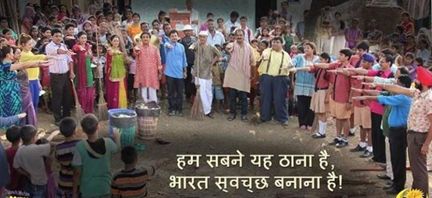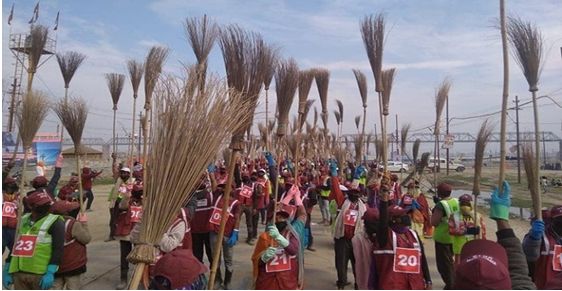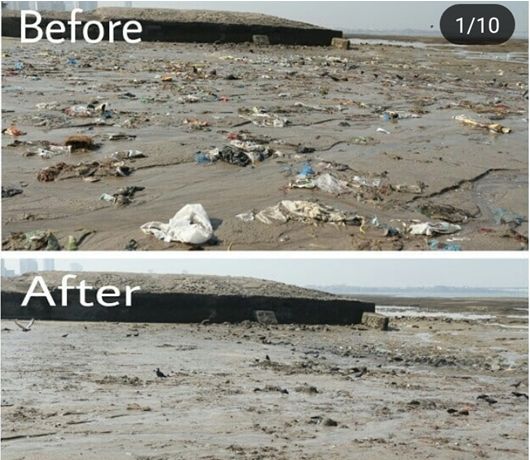Swacch Bharat
Mar 09, 2019 • 13 views
SWACCH BHARAT
‘Cleanliness is next to godliness'. This one is a prominent quote which we have heard since childhood. It actually is true that being clean and keeping the surroundings tidy has it's own perks. But when we talk about it on national level, then it appears to be a big deal.
Looking at a country so stretched like ours it seems to be difficult and yes it is. But still our government decided to make it possible. As Mahatma Gandhi quoted “Sanitation is more important than independence”, so on this note 'Swachh Bharat Abhiyan' or ‘Clean India Mission' was launched by Indian PM Narendra Modi on 2 October 2014. This mission aimed towards the development of proper hygienic conditions, community toilets and establishing cleanlinessall around.

The mission has been a great success and has been appreciated widely. It has been efficient enough to cast an impact on both the rural as well as urban areas. Here the urbanist welcomed the mission with zeal and even buzzed the celebrity classes, it has equally benefited the rural areas. It managed to gain highlights in the villages and has done a lot of work in such areas.
Swachh Bharat Mission Rural had it’s own objectives.It aims at cleaning up roads, infrastructures, streets, rural areas, smaller towns and cities of the country. The primary motive of ‘Clean India Mission’ is to uproot the open defecation by constructing community-owned and household-owned toilets. It also aims at building a mechanism that can monitor toilet use. Swatch Bharat Abhiyan (Rural) falls and operates under Ministry of Drinking Water and Sanitation. The volunteers of the campaign are called ‘Swachhagrahis’ or ‘ambassadors of cleanliness,’ who have promoted Community Approaches to Sanitation (CAS) at village levels and indoor plumbing.As for what this program has done, so it has constructed individual and community toilets, reduced open defecation, monitor use of toilets and also educating people about health, cleanliness, sanitation and diseases caused by bad environment.
The campaign surely benefited us in many ways. Now a number of toilets have been constructed and are used too. An accountable monitoring mechanism

helps in utilising it in true senses. Reduction of open defecation has also declined the number of deaths caused due to unhygienic living conditions and diseases. People at rural level too are now aware of the repercussions of open defecation. The mission aimed at recruiting ground staff that can train and bring about the behavioural change in the mind-set of the rural population to use toilets and has evidently been successful in doing so.
So at last to conclude we can say thatthis mission run by the Government of India aims at achieving Open-Defecation Free India by constructing 90 million toilets in rural areas of the country by the 150th birth anniversary of Mahatma Gandhi (2nd October 2019) and hopefully it does so. India will also reach Sustainable Development Goal Number 6 (SDG 6) by achieving this mission. The campaign has bought around a sense of responsibility and awareness for every individual. This mission has become India’s largest drive till with more than 3 million college students, government employees, and school students from every nook and corner of the country participating in the campaign in cities, rural areas and towns, therefore it ought to be successful in it’s run.
We may have unconsciously started getting active for this cause but on a serious note the campaign has bought about a notion for collective good on a wide scale at an even larger platform.

